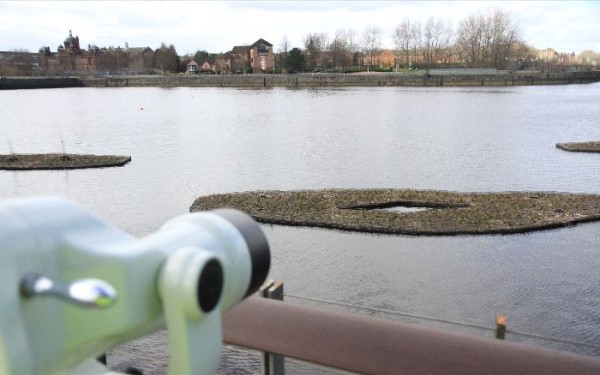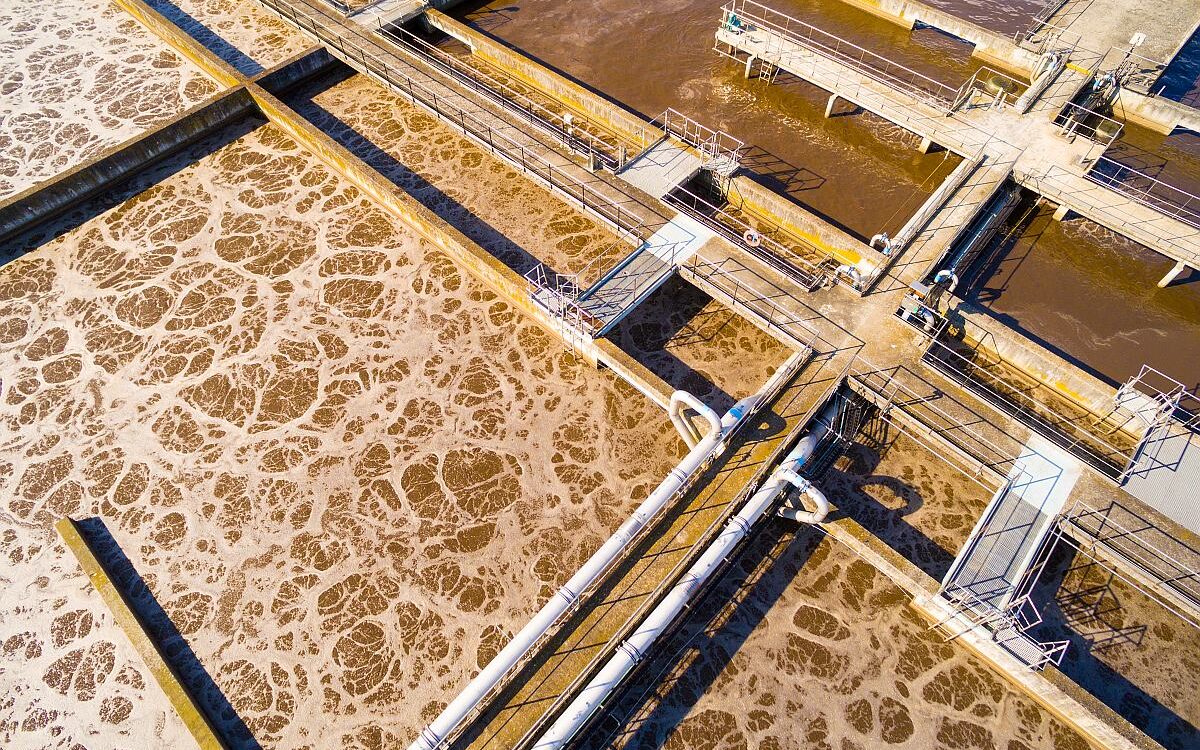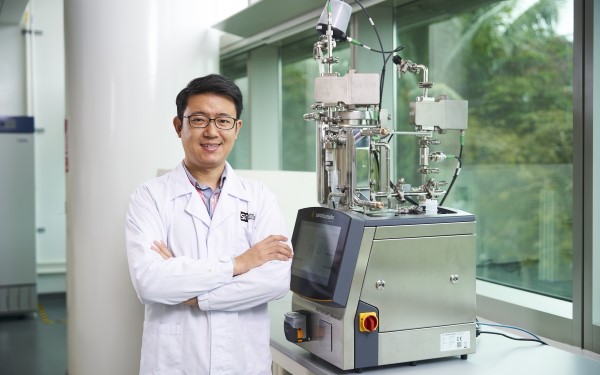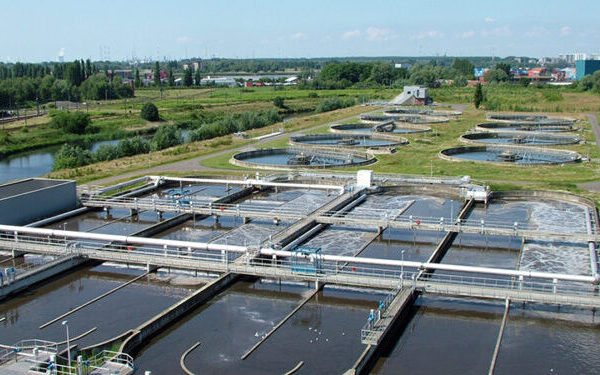April 21, 2023 | Biomatrix Water has installed Floating Ecosystems at the old Prince’s Dock in Glasgow to enhance aquatic life. They are located at the Glasgow Science Centre, which educates about the importance of biodiversity.
Biomatrix Water has installed Biomatrix Floating Ecosystems at the Science Centre in Glasgow. Glasgow Science Centre is a cutting edge visitor attraction bringing the wonder of science to hundreds of thousands of visitors each year. They recognise the importance of increasing biodiversity in their surroundings and helping to educate their visitors on technologies that help bring water to life.
New Habitat for Aquatic Species
The hard-edged riverbank of the Canting Basin, part of the old Prince’s Dock, on the River Clyde is a challenging environment with limited habitat for wildlife. The Floating Ecosystems have been planted with over 2,000 native estuarine plants. They will provide habitat for birds such as moorhens, ducks, and cormorants to nest as well as for fish to gain shelter and find food. The installations may even attract visitors such as seals, otters, and porpoises, which can be found in the Clyde. There is an observation area with free-to-use binoculars and interpretation boards about the Floating Ecosystem just outside the science centre.
“The Floating Ecosystems have transformed the Canting Basin at Glasgow Science Centre and are a wonderful addition that will enhance biodiversity, showcase environmental sustainability, and encourage community conversations around the future vision of the river Clyde. The Biomatrix team played a key role, using their expertise to design the islands unique to the requirements of our site. The vertical quay walls, with restricted access, and the tidal fluctualtions in the Canting Basin made this a challenging site, but they met these head-on and delivered an extremely professional standard of service,” says Jenny Galbraith, Exhibition and Project Manager at Glasgow Science Centre.
New Life in a Historic Location
In 1900, the Prince’s Dock were the country’s deepest graving docks, capable of holding the largest ships afloat. They were used to carry out maintenance and to repair the hulls of ships. The Floating Ecosystems will bring new life to this historic location.
It is an estuarine environment with a tidal range over four meters. The Floating Ecosystems can accommodate for the changing levels of the water, rising and falling with the tide.
Floating Ecosystems as ‘Living Laboratory’
One exciting aspect of this project is that scientists and students from the University of Glasgow will study the Floating Ecosystem and use them as a type of ‘living laboratory’. They will examine the impact that plants have on local animal populations and monitor any changes in the water conditions.
Public engagement is fundamental to the mission of Glasgow Science Centre. Throughout the project over 140 community group members participated in workshops to learn about the importance of biodiversity and greening of urban environments.







